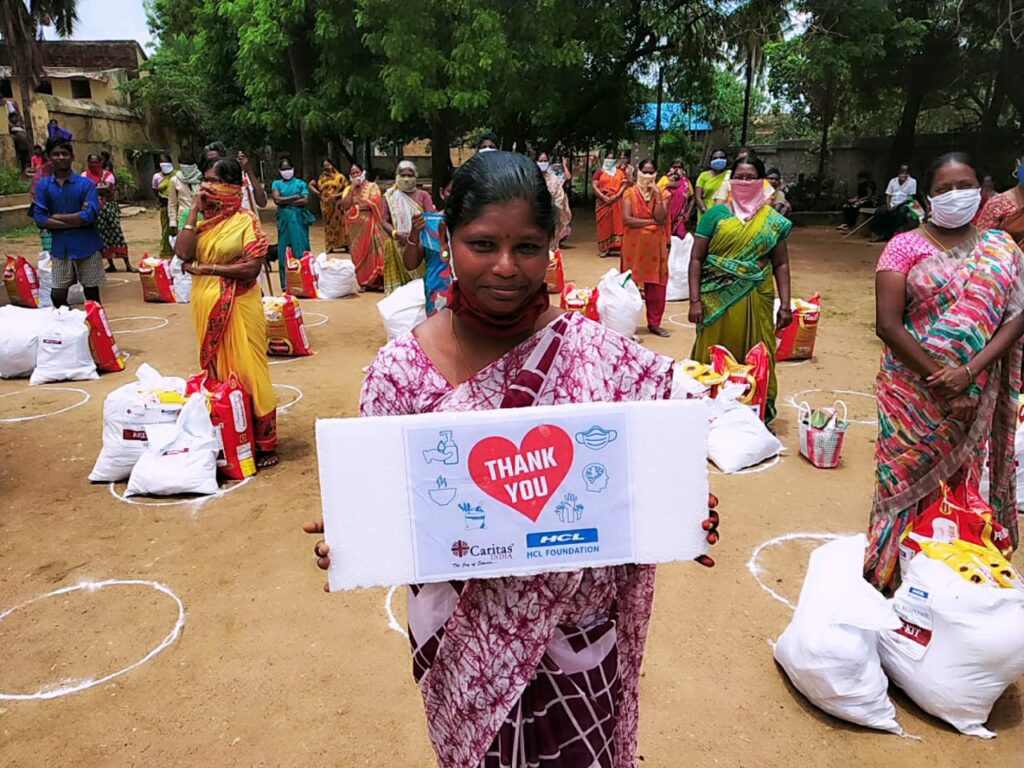By Leeza, Thematic Manager, Migration & Anti Human Trafficking, Caritas India
Among the effects of COVID-19 in our societies, there is the greatest possibility that vulnerable people, especially children, can become victims of human trafficking, abuse, and exploitation.
The government imposed the lockdown for India’s 1.3 billion inhabitants on March 24, 2020. According to the Centre for Monitoring Indian Economy on 12th May over 122 million people in India already lost their jobs. Around 75% of them were small traders and daily wage-laborers. And when families are economically unstable, the vulnerability of children increases.
At one point during lockdown in India, over the course of 11 days, 92,000 cases of child abuse in the family and in the communities were reported to government helpline.
Among the reported cases, that of a father who lost his job and sold his four-month-old child to a wealthy couple, without the child’s mother being aware of it. When the couple showed up to take the baby, the woman managed to save her child thanks to the intervention of the neighbors. The man was a daily wage worker in construction and because he had no work and couldn’t feed his family, he sold the baby in desperation.
In recent months there has also been an increase in cases of forced marriages. Families marry their daughters to have one less mouth to feed. We’ve come across cases where children as young as 12 have been trafficked into a forced marriage.
In the villages, where there is no internet access, many children were unable to continue attending online lessons and there is a high risk of an increase in child labor once we return to normal life. Caritas India is working to help vulnerable children by supporting peer-to-peer learning, psychosocial support, and different activities such as painting, poster making, sports, etc.
We are also helping families to apply for government aid. The government of India has announced provisions to address the issues of returnee migrants and similarly affected rural population by COVID-19, and Caritas India is supporting the migrant workers to avail these subsidies.
We have provided 1.465.407 migrants across the country with basic needs, food, masks, shelter, personal protective equipment, etc. By helping them, we hope to help prevent them or their children from falling victim to trafficking.

Caritas aid during the COVID-19 pandemic helps prevent children from being trafficked. Photo by Caritas India
An important aspect of our work is prevention. To create awareness, we’ve also produced a song in Hindi about the risks of human trafficking and printed brochures and leaflets that we distribute in villages and communities.
We’re also training police, so they are able to identify victims of human trafficking. This is not an easy task, as with COVID-19 there are other forms of trafficking emerging such as cybercrime involving children. People target them online, groom them, and try to meet them to abuse them.
Caritas India is working with local communities, strengthening mechanisms like village child protection committees in order to prevent child trafficking. We are also closely working with local governance, village leaders to create a safety net for children. We sensitize and train the transport department workers- bus drivers, auto drivers, rickshaw pullers, potters at the railway stations – to identify the trafficked person and inform the respective officers.
As governments in many parts of the world are now focusing on health, many other issues, such as human trafficking and exploitation, are taking a back seat. But we strongly need to adopt a common approach to combat human trafficking effectively at the national and international levels. Governments and civil society need to work together to make a difference.



